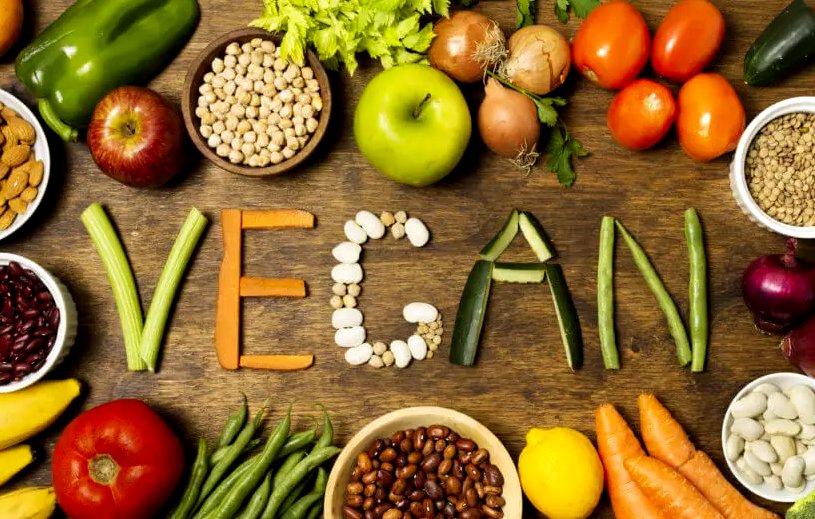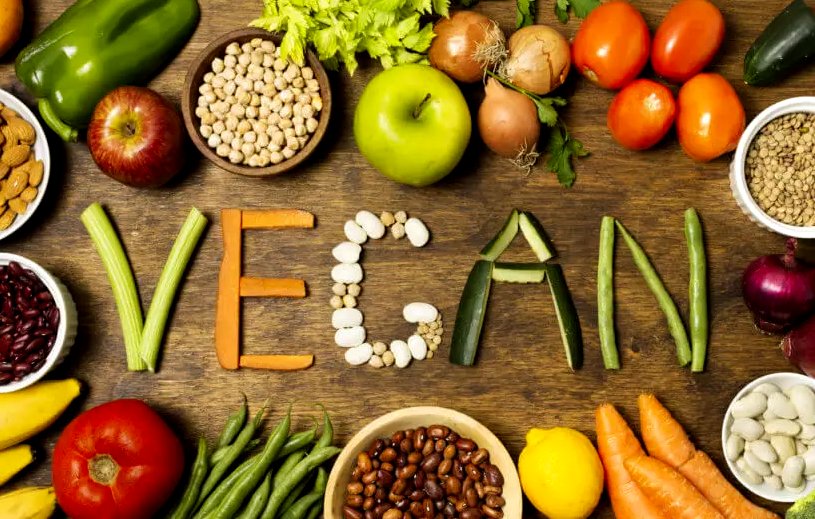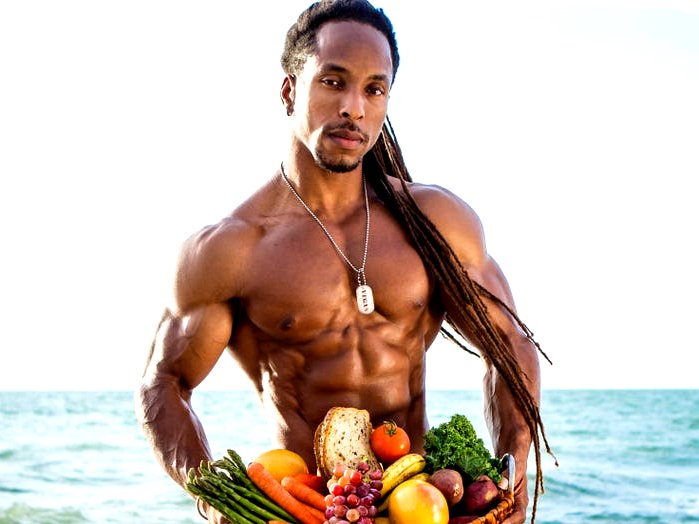Veganism has quickly become an immensely popular lifestyle choice in modern society, cited as ethical or environmental considerations, or health grounds. But do not be misled into believing that being vegan automatically results in having an ideal figure; while a vegan diet may offer some ways to shed unwanted mass, this should not be taken as a promise that weight will come off - instead regular physical activities and metabolism help the process as a whole!
This essay attempts to shed light on why not all vegans are thin. Our investigation will cover topics such as veganism and body weight, vegan diet for weight loss, nutrition's role in weight management and how losing weight on a vegan regimen works. Ultimately this comprehensive exploration will equip you with specific knowledge regarding key components involved in maintaining and attaining healthy weight while on a vegan diet regimen - giving insight into why some vegans are not thin! It's time to delve deep into this intriguing conundrum: why are some vegans not skinny.
I. Vegan Diet for Weight Loss
Multiple individuals rely on veganism - an eating regimen which excludes meat, dairy products and any animal-derived products - as a strategy for weight loss. While following such a diet can be effective at losing unwanted pounds quickly and safely, following one will not guarantee instantaneous success.
Why vegans struggle with weight loss?
Vegans continue to struggle with weight loss due to their consumption of processed or calorically dense vegan-oriented snacks, such as cheese and baked goods made from soy or other plant sources, that are packed with calories and preservatives - often even more so than animal products! Unfortunately, consuming more calories than you expend leads to no weight loss at all, unless exercise becomes part of the plan; otherwise your mass may only grow over time.
How to achieve body-mass index goals on a vegan diet?
To meet your body-mass index goals, adopting a whole foods-based diet that restricts processed foodtuffs, added sugars and unhealthy oils is of vital importance. Fill your plate with plant-derived nutrition such as cereals, legumes, vegetables and fruits while limiting indulgence in high calorie vegan alternatives.
How exercise can help in weight loss on a vegan diet?
Consistent exercise routines are also key for weight loss on a vegan diet. Cardiovascular exercises like bike riding, swimming and running are beneficial in burning off excess calories quickly while strength training provides muscle toning and conservation to maintain a healthy weight over an extended period.
Veganism may be an effective dietary regimen for weight loss, but there's no magic formula - eating healthily balanced meals and leading an active lifestyle is key in reaching weight loss goals and maintaining an ideal bodyweight long term.
>Remember, weight loss is a journey not a destination!Read more about Vegan Diet for Weight Loss on Medical News Today.II. Vegan Diet for Weight Loss
However, in addition to diet choices, other aspects can have an effect on one's weight such as metabolism, genetic predispositions and lifestyle decisions. Adherence to a vegan diet doesn't guarantee weight loss as other factors also impact body composition.
Metabolism
Metabolism plays an essential role when it comes to weight loss or gain, since each individual's calorie-burning rate varies widely. Some may possess an impressive metabolism that burns calories like an oven while others may experience slower rates of metabolism that lead to slower rates of weight loss. As this intricate interaction among various metabolic systems dictates, even when two people consume identical quantities of calories on a vegan diet plan, their respective journeys might differ drastically due to individual differences that impact metabolic pathways and rate of weight loss.
Genetics
Examining the role of genetics in weight loss reveals that no matter their diet or exercise routine, some people might be genetically predisposed to carrying extra pounds and having slower metabolisms than others. With proper strategies and approaches in place, losing extra weight should still be achievable for such individuals.
Be mindful that not all individuals who transition to veganism do it to lose weight; ethical, environmental and health concerns might drive some individuals toward adopting this lifestyle - their priority may not be weight reduction but instead optimizing overall health and wellbeing by adopting vegan food habits.
No matter why one decides to become vegan, it is essential to remember that going vegan alone won't lead to dramatic weight loss. Your metabolism, genetic predispositions and lifestyle habits all play an integral part in how much or little your weight fluctuates; so, in order to maintain long-term healthy weight and achieve long-term weight management it is key that a balanced, nutrient-rich diet and regular physical activity is prioritised.
III. Veganism and Body Weight
Diet is key when it comes to successful weight management, and veganism offers plenty of essential nutrients essential for weight regulation, such as protein, healthy fats and carbs.
Protein for Muscle Mass
Plant-based foods offer an amazing variety of proteins including legumes, nuts and seeds; essential components to building muscle mass while offering satisfying satiety results.
Healthy Fats
Healthy fats can also play a critical role in managing appetite and cravings and are abundant among plant-based alternatives like avocados, nuts and seeds; their consumption ensures you feel full and satiated, potentially warding off harmful behaviors such as overeating or indulging in unhealthy food options.
Carbohydrates for Satiety
Veganism's magic lies in its use of healthy carbohydrates like whole grains and fruit for adequate fiber and satiety, rather than refined carbs commonly found in processed food products. Achieving weight management more effectively while simultaneously increasing muscle mass is only achievable with natural sources of carbs such as fruits and whole grains.
>“The food you eat can either be the safest and most powerful form of medicine or the slowest form of poison.” - Ann Wigmore
Stay Hydrated
Don't underestimate the power of staying hydrated! Adequate water intake is essential to effective weight management on a vegan diet; adequate hydration can promote satiety by keeping you feeling full for longer and inadequate water intake could lead to unsightly water retention, making you appear heavier than you actually are. Water's impactful role cannot be denied when it comes to optimal weight management.
Conclusion
All in all, a vegan diet provides a healthy and sustainable approach to weight management that's sure to meet any goal effectively. Proteins, healthy fats and carbohydrates all play key roles in an ideal vegan diet plan; plus drinking plenty of water each day is vital in maintaining adequate hydration and aiding weight loss. So say goodbye to unsustainable fad diets and welcome veganism as an opportunity for optimal weight control!
IV. Vegan Nutrition and Weight Management
When looking to lose weight with a vegan diet, it's essential to remember that successful weight loss requires more than simply following a plant-based meal plan. Proper portion control and exercise must both be adhered to if achieving healthy weight is an objective of yours.
Effective Portion Control
Effective portion control is key to weight loss on a vegan diet. While vegan food generally has lower calorie counts than its non-vegan counterpart, overeating can still occur; thus using smaller plates, measuring portions accurately, and practicing mindful eating all help in curbing overeating tendencies and encouraging weight reduction.
Selecting Plant-Based Foods
Selecting plant-based foods as part of an effective weight loss strategy is another essential component to consider. Consuming an assortment of fruits and vegetables, whole grains, legumes, nuts and seeds not only ensures adequate nutrient intake but also helps regulate caloric intake - an integral element to healthy weight management.
Evaluating Caloric Consumption
Evaluating your caloric consumption levels is key when seeking to lose weight on a vegan diet. There are various apps and websites dedicated to tracking caloric intake for ease of monitoring progress towards meeting goals set.
Regular Exercise
Regular exercise is key to successful weight loss on a vegan diet. Participation in cardiovascular exercises such as running, cycling and swimming as well as strength training builds and maintains muscle mass that contributes to successful weight management in older adults.
Conclusion
Gaining and maintaining healthy weight with a vegan diet requires taking an holistic approach, including food choices, portion control, and regular physical activity. By carefully practicing portion control and selecting plant-based foods with lower calorie counts while making exercise part of daily life, reaching weight loss goals and maintaining it over an extended period are achievable goals.
Conclusion
Simply switching to a vegan diet won't guarantee weight loss; rather, adopting this lifestyle should serve as an integrative and comprehensive approach towards improved health and wellbeing.
To achieve and sustain wellbeing on a vegan diet, it is imperative to consciously focus on balanced nutrition, portion control and regular physical activity. This combination should ensure adequate nutrient intake while curbing binge eating and countering potential nutritional issues caused by an unbalanced vegan diet. Managing serving sizes and caloric intake are vital tools for weight management in tandem with sound choices like plant-based foods rich in essential vitamins and hydration as well as regular physical activity for optimal weight and fitness levels.
Establishing and adhering to a vegan lifestyle that supports individual body goals while engaging in regular physical activity are effective strategies for attaining optimal health and wellbeing, regardless of body size or shape. There's nothing quite as rewarding as feeling body confident through adopting veganism as an integral component of overall wellness.
Veganism is not an all-or-nothing formula for optimal body fitness and health. By adopting an approach which incorporates balanced nutrition and regular physical activity tailored specifically to meet personal goals and needs, one can attain overall sound physical and mental wellness on a vegan diet. Why not embrace it today and reap its many advantages?




